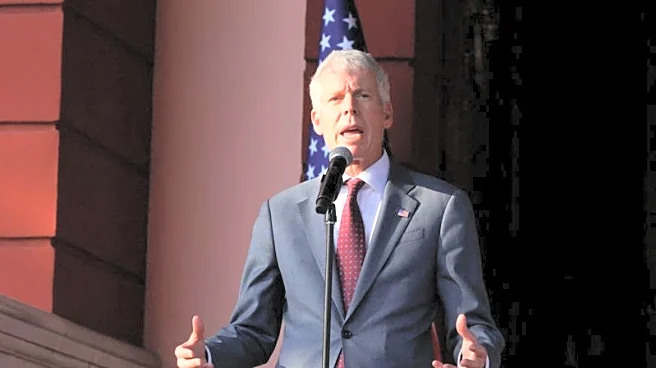What's Happening?
Dr. Ghassan Abu-Sittah, a reconstructive and plastic surgeon at the American University of Beirut Medical Center, is working to heal children from Gaza who have been injured in the ongoing conflict. Among these children is Kenzi Madhoun, a 6-year-old girl who lost her right arm in an airstrike. Dr. Abu-Sittah's efforts focus on improving the quality of Kenzi's remaining upper arm to facilitate the fitting of a prosthetic limb. His work involves complex reconstructive surgeries, a field he has specialized in for over three decades, treating war injuries in various conflict zones, including Gaza. The doctor collaborates with local activists in Lebanon to support these children, providing them with the necessary medical care to improve their quality of life.
Why It's Important?
The work of Dr. Abu-Sittah highlights the severe impact of war on children and the critical need for specialized medical care in conflict zones. His efforts not only aim to physically heal these children but also to provide them with a chance at a normal life, despite their traumatic experiences. This initiative underscores the importance of international medical collaboration and support for war-torn regions, where local resources may be insufficient to address the complex needs of injured civilians. The story of Kenzi Madhoun serves as a poignant reminder of the human cost of conflict and the resilience required to overcome such adversities.
What's Next?
Dr. Abu-Sittah plans to continue his work with Kenzi and other children, involving multiple surgeries over several years to accommodate their growing bodies. The collaboration with Lebanese activists aims to expand support for more children affected by the conflict, potentially increasing the number of patients who can receive life-changing medical interventions. As the situation in Gaza remains volatile, the need for such medical missions is likely to persist, requiring ongoing international attention and support.
Beyond the Headlines
The ethical implications of treating war injuries raise questions about the responsibility of the international community to protect and support vulnerable populations in conflict zones. Dr. Abu-Sittah's work also highlights the cultural and psychological dimensions of healing, as children like Kenzi navigate their identities and futures amidst the backdrop of war. The long-term impact of such medical interventions can lead to shifts in societal perceptions of disability and resilience.











